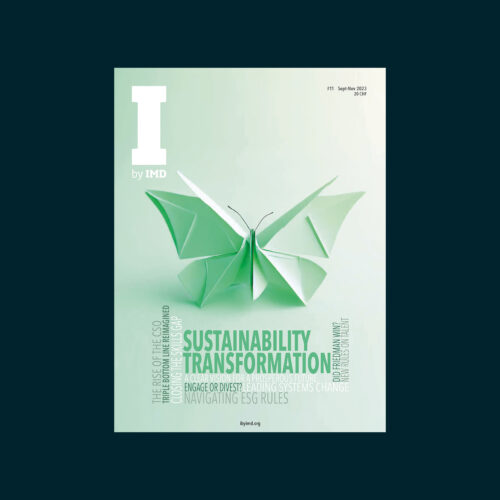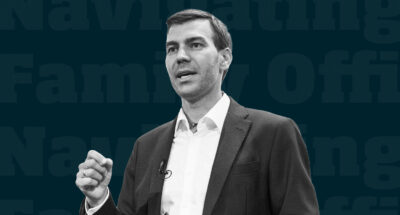
Six books on AI written by intelligent humans
The old-fashioned printed word offers valuable insight on the latest technology. Here is our guide....

Published 13 October 2023 in Book Review • 4 min read
Ask any leader who drives sustainability transformation if collaboration is important, you will get a sounding “yes”. Ask if collaboration is working well within his or her organization and with outside stakeholders, the answer will be much more pessimistic. Radical Collaboration is a “how to” guide for building effective collaboration in and outside the organization. Sustainability transformation is dependent on strong collaboration – not only within organizations but also with external stakeholders. Without it, building competitive advantages based on sustainability is impossible. Radical Collaboration is an important guide to taking collaboration seriously and putting it at the heart of the upskilling initiatives needed for sustainable business transformation.
Florian Hoos, Professor of Sustainability and ESG Accounting
The “knowing-doing gap” is perhaps the most significant climate-related challenge we face today. The concept explains a situation where we have plenty of knowledge (through science and our own experiences) to assess the challenge, but still do not act forcefully enough. This can be applied to climate change: despite our increased knowledge, inaction is the real enemy. The book by Hayhoe, a reputable climate scientist known for her ability to communicate complex concepts, is among the most important on the subject so far. Her message is clear: it matters how we talk about climate change and who we talk to. There is always a way towards mutual understanding. She uses anecdotes – positive and negative – about bridging the knowing-doing gap, provides real-life examples of conversations, and reveals our dilemmas. Hopefully, Saving Us can help us to engage in better dialogue and more aligned action.
Knut Haanaes, Professor of Strategy and Lundin Sustainability Chair
How will our climate future unravel for business and society? Countless business and economics books have provided theories and recommendations, but they miss a novel’s ability to engage a reader’s imagination and emotions. The Ministry for the Future, published in 2020, does exactly that. It’s 2025 and the ministry has been set up under the auspices of the Paris Agreement with the purpose of acting on behalf of future generations of all living creatures. The ministry’s activities gather pace when a deadly heatwave hits India. The novel – which centers on the adventures of Mary Murphy, the leader of the Ministry, and Frank May, an American aid worker – provides thought-provoking commentary and hard scientific evidence on the effects of climate change.
James Henderson, Professor of Strategic Management
Is society already experiencing total system collapse? Renowned scholar Jem Bendell argues that the collapse of industrial consumer societies is well underway – framing it as a process rather than a single event. He invites us to reflect openly and honestly on the “deep adaptation” required to ensure future flourishing. The book’s first half explores seven types of collapse: economic, monetary, energy, biosphere, climate, food, and societal. The second focuses on seven “freedoms,” including the freedom to know, freedom from progress, and freedom from banking. The book offers a practical way to rid ourselves of self-destructive habits that abound in our consumption-led, fear-based society and choose instead to live in a more spiritual and sustainable place of universal love.
Susan Goldsworthy, Affiliate Professor of Leadership, Communications, and Organizational Change

No organization can escape the need to transform to become more sustainable. The need to act is urgent. It calls for strong leadership, difficult decisions, and deep cultural change. In Issue XI, we explore how to build sustainable organizations to succeed in turbulent times.
When we think about sustainability, we often consider the preservation of the planet and the biosphere (at least I do). While this is essential, we also need to think about preserving fundamental rights such as access to reliable and unbiased information, the freedom to form informed opinions, and the ability to choose and critically assess what we consume. Privacy is Power explores how personal privacy is evolving in the digital age, emphasizing the societal risks stemming from an increased use of digital tools and services in all spheres of our life. Posing challenging questions, Véliz provides readers with mental frameworks and practical tools to critically assess how their data is being used. She inspires readers to become “privacy active” citizens who can shape and co-create a more prosperous, free, and socially sustainable society. A must-read for all those aspiring to lead.
José Parra-Moyano, Professor of Digital Strategy

30 April 2024 • by Öykü Işık in Book Review
The old-fashioned printed word offers valuable insight on the latest technology. Here is our guide....

29 January 2024 • by Katharina Lange in Book Review
A new book by Dovev Lavie, Professor at the Department of Management and Technology of Bocconi University, sets out an extraordinary plan to tackle urgent social problems of inequality, wealth concentration, loss...

19 January 2024 • by Peter Vogel in Book Review
IMD’s Peter Vogel and Martin Liechti of the Cambridge Family Enterprise Group demystify the concept of the family office, explore emerging trends in the field of dynastic wealth, and share insights into...

16 December 2023 in Book Review
IMD professors recommend books for the festive season....
Explore first person business intelligence from top minds curated for a global executive audience